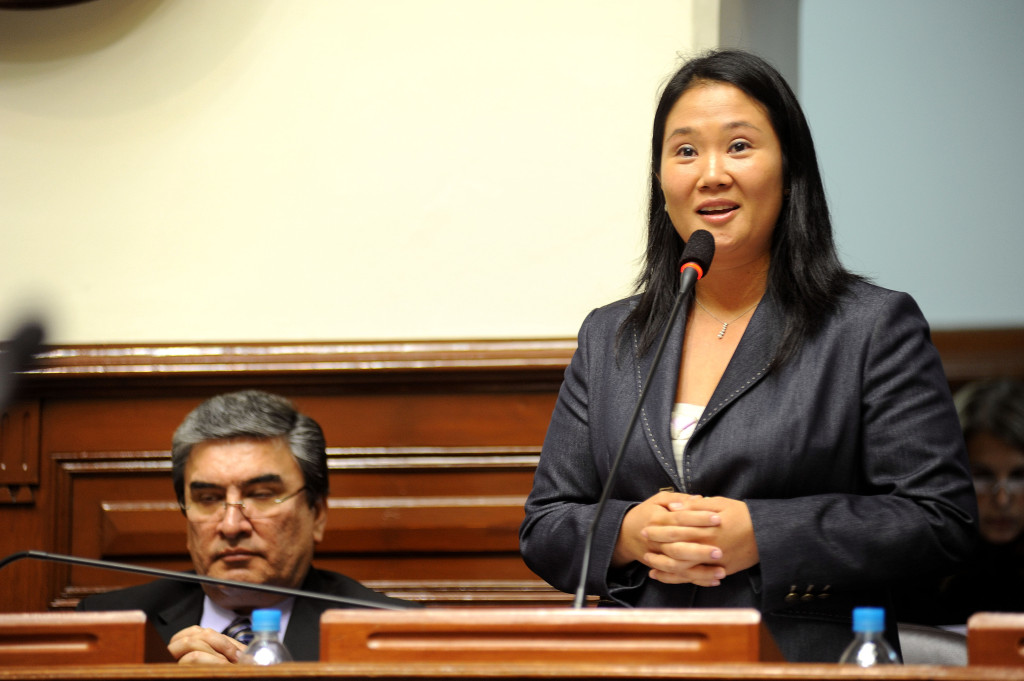A New Fujimori in Peru?
On April 10, the Peruvian general election will bring the nation one step closer to the end of a controversial cycle as legal reforms have manufactured a political crisis in the potential victory of Keiko Fujimori, the candidate representing the Popular Force. Given the high likelihood of Fujimori winning the elections, or at least advancing to the second ballot, political pundits fear the possible reintroduction of a destabilizing and undemocratic political philosophy. With the introduction of Law Number 30414, the National Jury of Elections (JNE) achieved increased regulation and oversight of electoral processes. Through the law, the JNE has tightened the prohibition of candidates offering gifts during a campaign, opting to punish offenders with exclusion from the ballot. Consequently, the election cycle has experienced two noticeable shocks in the exclusions of César Acuña due to campaign finance problems and Gerardo Távara for “violations of internal democracy,” leaving the list of official candidates in a state of flux.
The most important effect of the introduction and enforcement of Law Number 30414 has been the subsequent rise of Keiko Fujimori—a candidate surprisingly cleared of vote-buying allegations. The daughter of controversial former President Alberto Fujimori, Ms. Fujimori carries the pervasive shadow of Fujimorism, a term denoting the political ideology of her father. Fujimorism has come to be associated with free market policies, staunch anti-communism, and a strong presidency, often at the expense of other political institutions..
According to recent polling, Fujimori has a significant lead at 40.8%. If she does not surpass a 50% threshold, Fujimori will face a second round ballot to be held about two months later.

Recently, political opposition has sought to emphasize the dangers of the potential return of Fujimorism to the Peruvian political landscape by suggesting that it would be corrosive to democratic principles. However, with widespread support, Keiko Fujimori will definitely walk away with a sizable portion of the votes—the question really is, can Fujimori surpass the 50% threshold?
Update: Lacking the simple majority necessary to win the election outright, Keiko Fujimori, with 39.10% of the total vote, has advanced to the second ballot as of 9:00 pm on April 10.
